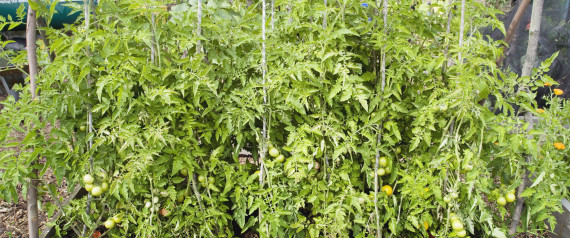GlobalPossibilities, Oct. 29, 2013
By Robert Ogilvie
Vice President for Strategic Engagement, ChangeLab Solutions
All across the country, the urban agriculture movement is growing. Communities are raising fruits and vegetables in places as varied as vacant lots, backyards and such public properties as vacant fields, schoolyards, parks, utility rights-of-way and even the rooftops of public buildings. These communities can see many benefits: new sources of fresh and healthy food, food literacy, job skills development, urban greening, promotion of civic participation, public safety and urban revitalization.

In many cases, urban gardening begins organically, but without a supportive policy structure in place, it can be difficult for these programs to take root, thrive and be of maximum and equitable benefit to the whole community. These policy structures might consist of changes to existing zoning code, or they could consist of partnership agreements that help spread the responsibility for a successful urban gardening program across complementary groups.
Here are two examples of communities that have successfully built such policy structures:
- Cleveland has turned an overwhelming number of vacant and foreclosed properties — nearly 20,000 in total, with 5,000 in the City of Cleveland Land Bank — into an opportunity. The Reimagining Cleveland Initiative, a partnership of Neighborhood Progress, Inc. (NPI) the City of Cleveland, Kent State University, Ohio State University Extension, and others are implementing a pilot land reuse demonstration initiative that is turning city-owned vacant sites into productive use – including such urban agriculture uses as community gardens, marker gardens, orchards, vineyards, pocket parks and neighborhood pathways.
Cleveland Community Gardens. Access this map here.
To make this a reality, the city updated their zoning code in November 2010 to permit urban agriculture in residential districts, which had been banned under the previous zoning code. Also, the Ohio Department of Agriculture came out with guidance on which home-grown and homemade products can and cannot be sold, and how products for sale need to be processed, packaged and labeled.
- San Jose, CA had more demand for garden space than the city could accommodate through the 30-year-old San Jose Community Garden Program, and budget cuts had forced the city to place a 2009 moratorium on creating any new gardens. In response, a local nonprofit formed a new partnership with the city to try and meet community demand. Partners in San Jose’s new Community Garden program include the Department of Parks, Recreation and Neighborhood Services (PRNS), which has long administered the program; The Health Trust, a local nonprofit that had been coordinating healthy food access work through the Campaign for Healthy Food San Jose; and CommUniverCity, another local nonprofit focused on service-learning programs for local youth. CommUniverCity subleases land from PRNS and is responsible for garden maintenance and operations, must carry a $1 million in liability insurance and must indemnify the city. PRNS, in turn, manages the lease and ensure a steady water supply from the Santa Clara County Water District. The Health Trust funds CommUniverCity’s operations.
In Cleveland, San Jose, and other communities in which urban and community gardening has taken root, partnerships have been key to helping those projects achieve their full community transformation potential. Successful partnerships are built on agreements that define the relationship between individuals, community organizations, and public entities, and provide clarity to everyone involved.
These agreements can take many forms — they can be informal agreements, leases, licenses, contract, memoranda of understanding (MOUs), permits or joint use agreements. Different types of agreements are right for different communities, but most should address the following issues:
- Liability: Indemnification and insurance;
- Utilities;
- Maintenance;
- Growing practices & pest management;
- Soil conditions;
- Access and security; and
- Improvements.
With these issues covered, your community will be better prepared to reap and sustain the full benefits of urban gardening and greening.ChangeLab Solutions is here to help think through what agreements would best seed the ground for a rich harvest for every member of your community.
========
ChangeLab Solutions offers an array of tools to help make community gardening a reality, including Dig, Eat, and Be Healthy: A Guide to Growing Food on Public Property, and Seeding the City: Land Use Policies to Promote Urban Agriculture.
This work was originally published on CommunityCommons.org.


NJEJA and ICC Provide Comments on BOEM’s EJ Strategic Plan